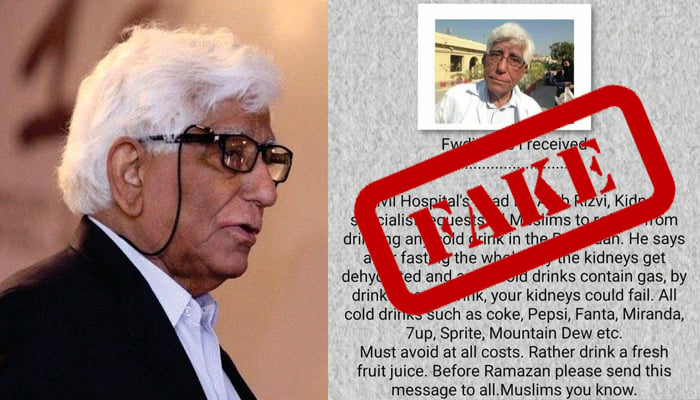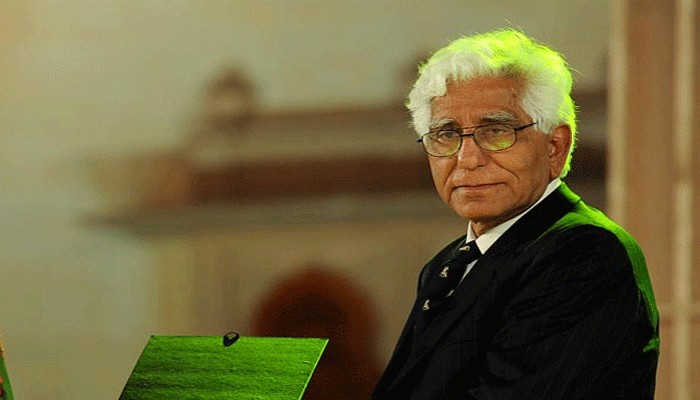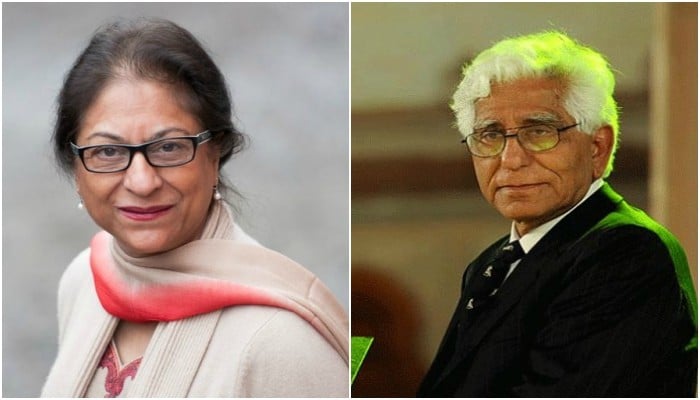SIUT debunks text message containing false health advice from founder
'Dr Adib Rizvi & SIUT has not issued any such statement,' it added
May 01, 2018

KARACHI: The social media team of Pakistan's top urology institute released a statement Friday debunking claims that a viral text message — containing quoted advice to "refrain from drinking any cold drink in the Ramadan" — was not, in fact, issued by facility's founder.
"Some mobile sms messages are in circulation attributing [Dr Syed Adeeb-ul-Hasan Rizvi], Director Sindh Institute of Urology and Transplantation (SIUT) to the use of some commercial soft drinks especially during Ramzan," the notice reads.
"Dr Adib Rizvi & SIUT has not issued any such statement," it added.
The circular added that a similar incidence had happened in 2017 as well, forcing the SIUT's team to issue a similar statement then too.
"Similarly sms had appeared last year in Ramzan. Dr Rizvi and SIUT had issued a similar denial regarding this sms," it noted.
The said message — being circulated on social media, mobile applications such as WhatsApp, and text messaging service — contains the following: "Civil Hospital’s head Dr. Adib Rizvi, Kidney specialist requests all Muslims to refrain from drinking any cold drink in the Ramadan.
"He says after fasting the whole day the kidneys get dehydrated and as all cold drinks contain gas, by drinking cold drink, your kidneys could fail. All cold drinks such as coke, Pepsi, Fanta, Miranda, 7up, Sprite, Mountain Dew etc. Must avoid at all costs. Rather drink a fresh juice. Before Ramazan please send this message to all.Muslims you know," the text adds.
The renowned philanthropist and the SIUT's founder was part of a committee, alongside former attorney general Munir A Malik, that presented its recommendations late last month to curb the illegal organ trade in Pakistan.
“In Karachi, over 1,000 people are killed in different incidents and accidents in a year and there’s a need to use the organs of the deceased,” he had said earlier.
In March, Dr Rizvi, who believes people will continue to be affected by kidneys diseases if diabetes and high blood pressure were not treated, was awarded the Nishan-e-Imtiaz.
Last year, in December, he was hospitalised for treatment of chest infection and influenza. Dr Rizvi had stayed in a high-dependency unit for three days but was later moved to a private room, a statement issued by the SIUT had noted.














